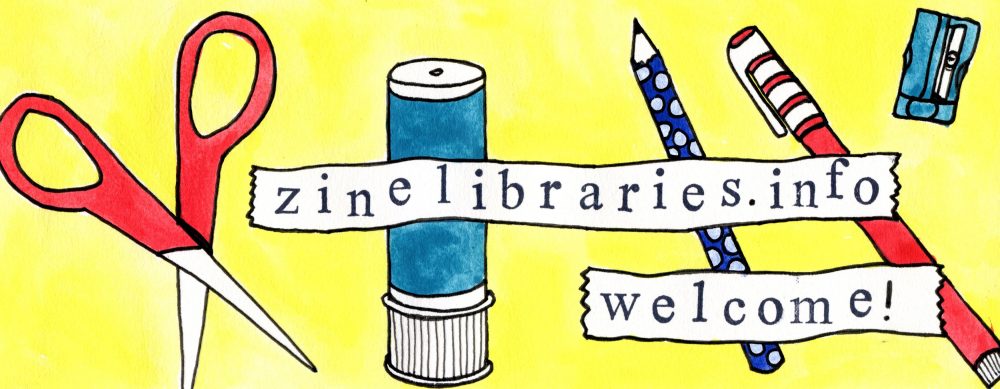Friday July 19
Breakout session 1, 10:15- 11:30am
Session name: Zines in Storytelling
Facilitator: rebecca
Note taker: ella
present: jennifer, lauren, rebecca, stephanie, kelsey, stephenie,Â
participant interests/ideas:
Making zines bigger part of job
Intergenerational learning and programming
spoken word to written word
storytelling vs. art zine community
students reading/creating
teen librarians, queer youth
sharing zines with people that need them most
Discussion:
Experiences working with patrons, getting them to tell stories through zines?
- Storytelling for college-age freshmen
- found it challenging, storytelling feels unfamiliar to the group
- getting past the barrier of “i would never tell somebody this,†or the visual tropes of zines
- use creative writing prompts
- allow free exploration of zines
- access to materials
- zine clubs: magazines, glue sticks, everything you need; plus examples of zines
- materials budgets/photocopying: what can you get away with? what can you ask for from your institution?
- setting up a parameter, ex: once a month bring in what you’ve finished and we’ll make ten copies for you. This also allows for your institution to know what to expect
- the importance of the final product
- materials budgets/photocopying: what can you get away with? what can you ask for from your institution?
- zine clubs: magazines, glue sticks, everything you need; plus examples of zines
- Students intimidated by the process
- scaffolding in experiences
- community zine (workshop at acrl)
- Respect for the power dynamic
- being vulnerable, but also being at work
- not asking students to put themselves at risk through the assignment
- With teens but would also work with freshmen:Â
- list of expectations – stories stay in the classroom, not grading them on the story told, but on the effort
- Intergenerational activity – interview elders and those with various life experiences
- teen homeless shelter creative writing workshop – participants wouldn’t talk about themselves, but interviewing others in the workshop was very successful
- youth and elders communicating
- Not just consumers of media, but also creators
- How to make storytelling safe for “at risk†creators?
- list of expectations, signing a behavior contract (both facilitators and participants)
- takes time to build relationships
- For teens: no parents allowed
- Public librarians have facilitator roles, not as much authority figures – more neutral figures
- Full storytelling safety is not really possible in a classroom
- But conveying to students that “its ok to care about a subject†is helpful, combats detachment and challenges with academic voice
- Student run clubs (may be unsanctioned)
- useful for expression, can also be risky depending on content
- Safety of having community member-created zines out in a library where the rest of the community has access
- pseudonyms, identity, anonymizing oneself
- internet and information privacy talks relevant here
- pre-internet zines vs new zines
- “A Story†vs. “That specific person’s storyâ€
Storytelling Prompts:
- have you ever seen a ghost
- have you ever seen a ufo
- grossest food you’ve ever eaten
- most exotic place you’ve ever traveled to
- Collaborative dis-orientation guide: What do you wish you had known when you started?
Passing around samples of zines, storytelling
Sharing your story, your story is your own and no one can take it away
Storytelling is something that makes zines powerful and magical
They can be anything, and your story fits into the format
